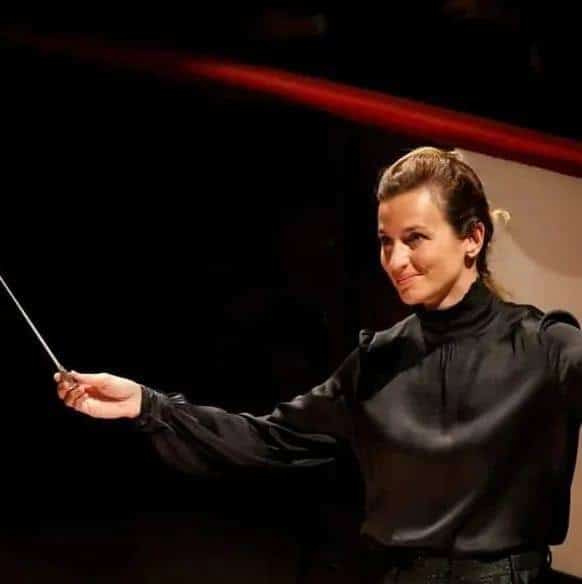Exclusive: Guy is forced to fly his cello first class
mainThe British cellist Guy Johnson, flying from London to his Eastman teaching position at Rochester, NY, was obliged by American Airlines to pay a first-class ticket for his cello.
Guy had booked British Airways, but the US leg – Chicago-Rochester – was taken over by AA.
Here’s what his folk say happened.
‘Before booking the AA flight, I called them to check that it would be possible to book a cello on these particular flights. I was advised that a cello seat could only be booked on these particular flights in First Class, due to dimensions/design of the seats/planes. This does not apply to all AA flights, but just to the specific planes involved in these routes on this occasion.
‘Both Guy and the cello each cost more for the Chicago-Rochester return ticket than Guy cost for the London-Chicago return ticket.’

Beware of flying AA and BA. They are out to screw you.





1. Why didn’t he fly to New York? Or Toronto? Surely they are closer to Rochester than Chicago?
2. It’s a sad indictment on airplane seating if economy class tickets are not wide enough to accommodate a cello.
3. If seats are smaller on some planes, it is likely it will be on these shorter commuter lines.
I’m not sure what the problem is here. Someone booked a ticket for travel with a cello, and was informed in advance that the cello had to travel in first class due to the configuration of the aircraft. Unless a claim is being made that the airline was mistaken in that requirement, nothing is wrong here. That a shorter leg may cost more than a longer flight is not unusual; tickets are not priced simply by distance traveled.
He may have booked the ticket with BA, but BA does not fly flights with both endpoints in the US. It uses a code-share partner (AA) to operate such flights. AA does not capriciously “take over” a flight from another airline – “hey, how about we fly this lot today, that okay with you?” – this is known at the time of booking, and will be so indicated on the itinerary.
Crazy way of subtracting money from musicians….. taking advantage of a 1st class player?
Hope the cello enjoyed its French gourmet meal, Champagne, wine selection, and XO Cognac in first class !
“…French gourmet meal, Champagne, wine selection, and XO Cognac …”
That’s what you’d get in First Class on an Asian airline.
This was First Class on a US airline, which means the cello got to enjoy a mid-range quality American cookie or small serving of mixed nuts/pretzels, water, fruit juice selection and a flight attendant that comes round more than once and may even smile.
As long as she runs her fingers up and own my neck and whips her hair this way and that across my belly — I’ll settle for the cookie! (You people are so hard to please.)
Half of flight attendants are male.
My cello doesn’t want their kisses, terrible as it is to admit.
Kisses! I meant to write: finger massages and hair-whippings.
See the kind of errors one can make in this highly-sexually-charged-gotcha!-mist which has invaded even classical music.
no meals (at least not French gourmet) on a domestic first class flight, I’d bet.
The cellist’s name is Guy Johnston.
and his recording of the Moeran Cello Concerto is anything but moronic.
Lmao I’m a student of his
Does he have more than one cello? Maybe he should keep one in each place and fly without. A couple more experiences like this and the second cello might pay for itself.
BA does not fly Chicago to Rochester – so he was flying on a BA ticket for an American Airlines flight. On that route, AA fly two types of very small commuter aircraft – an Embraer and a Canadair CR7. The Embraer has only three seats across – 1 + 2. The Canadair has 2 + 2. Seat pitch is 31″ on both, the same as on most BA transatlantic flights. However, these are tiny aircraft compared to a 777 or 747. They have a premium class which increases set pitch by a few inches. But having flown those small commuter planes, I suspect that height is by far the bigger problem. There is very little headroom and I doubt if there is enough room for the height of a cello once it is in a seat. With the larger pitch in the premium seats, there is greater flexibility.
Whoever booked his flights should have been aware of this and thee type of aircraft on that route.
Cellists and other musicians are often treated badly by airlines. The devil is in the detail, and in this case (if the info from Nick2 is correct) it does seem that there is an issue of seat size or headroom for a cello case on these flights, and BA / AA cannot be blamed for their actions.
That doesn’t let other airlines off the hook. But let’s not get angry every time.
On this one, there may be no room for complaints (at least to AA — though if he had a through ticket, why did he have to pay more than an upgrade fee?)
But in general, I think musicians SHOULD complain every time. They need to be doing it loudly, so airlines take note. Airlines may or may not be able to choose their own policy, but the number of cases reported here where airline staff on the ground or even at the gate and in the cabin refuse to follow stated, even attested — by musicians brandishing printouts of policies or letters from senior staff — policies is beyond a joke, costing musicians money many can probably ill afford, and making them think twice about accepting some work away from home base.
That affects their careers, and affects the opportunities of the music-loving public to hear talented and exciting players and repertoire they might not get every week in their own home towns. All of which affects the development of the art.
He needed a first class seat for one of the legs, so he would be charged a corresponding fare for that leg. He knew this in at the time of booking – there’s no extortion at flight time going on here. No one said “I don’t care if you have a ticket for a seat in coach for the cello, it needs to buy a new ticket for a seat up front or it goes below” – someone said “I need to travel with a cello to this destination,” and the airline said that on one of the flights involved it was necessary to buy a more expensive ticket for the cello to fit. Everything here appears to have gone correctly and how you would want, no surprises the day of the flight.
There are other airlines flying ORD-ROC operating A320 and the like, so a BA/AA combo was not the only possible way to roll here.
1 – Surely the cost of transporting an instrument is a deductible business expense. Why the outrage about paying for services?
2 – Imagine that an airline passenger wanted to bring a valuable, delicate, large work tool on board – oh, let’s say an astronomer with a large telescope, folded up in its hard case, which might be about the size of, say — a cello. Wouldn’t you expect that passenger to have to pay extra for taking up twice as much space as a person traveling without such an item? What if every passenger came on board with a large, expensive, delicate work tool, and expected that cabin space would be found? Why the outrage about paying for that extra space for a large instrument? It does not seem reasonable to expect the airline to provide double the space for a single fee. Would you play a three hour concert for an audience that has purchased a ticket for a 90-minute programme?
3 – After having read many stories here on SD about shoddy airline service to passengers, it seems that the worst cases are where musicians are not allowed to bring valuable and/or delicate instruments into the cabin (including when a passenger is NOT allowed to purchase a seat for a cello), and the instruments go into the hold, where they have too often been destroyed or damaged. Why the outrage about being allowed/required to purchase a cabin passage for the cello? Isn’t that what’s wanted?
That said, there is a real problem with how airlines treat traveling musicians and their instruments. Surely there are many thousands of such travelers, and surely most of them belong to professional organizations or (esp in the USA), employee unions. Surely these professional organizations can act on behalf of their members, to work with airlines to find ways that airlines can provide reasonable service while maintaining their profits? Most of the problems are caused by 1) airlines not understanding the value and uniqueness of musical instruments and 2) failures of communication between airline policies, airport policies/staff, and travelers. And that is where a professional organization can help. It’s apparent that no one in the airline industry is addressing this issue for musicians as a profession — they seem to see the incidents as one-off customer problems, rather than seeing the big picture of an entire profession not getting good service from the industry. The big airlines probably regard individual unhappy customers as so many buzzing gnats. But if the musicians’ professional organizations could approach the airline on a peer level, that might get the airlines’ attention. Perhaps this has already been done? Not much evidence to indicate it.
Airline situations seem to be a favorite red meat topic at SD.
And long may it be so till some of your suggestions or other solutions act to make airlines more responsive to the eternal problems. I can think of no issue that more justifies SD’s existence.
I wonder if he could swap seats with his cello…